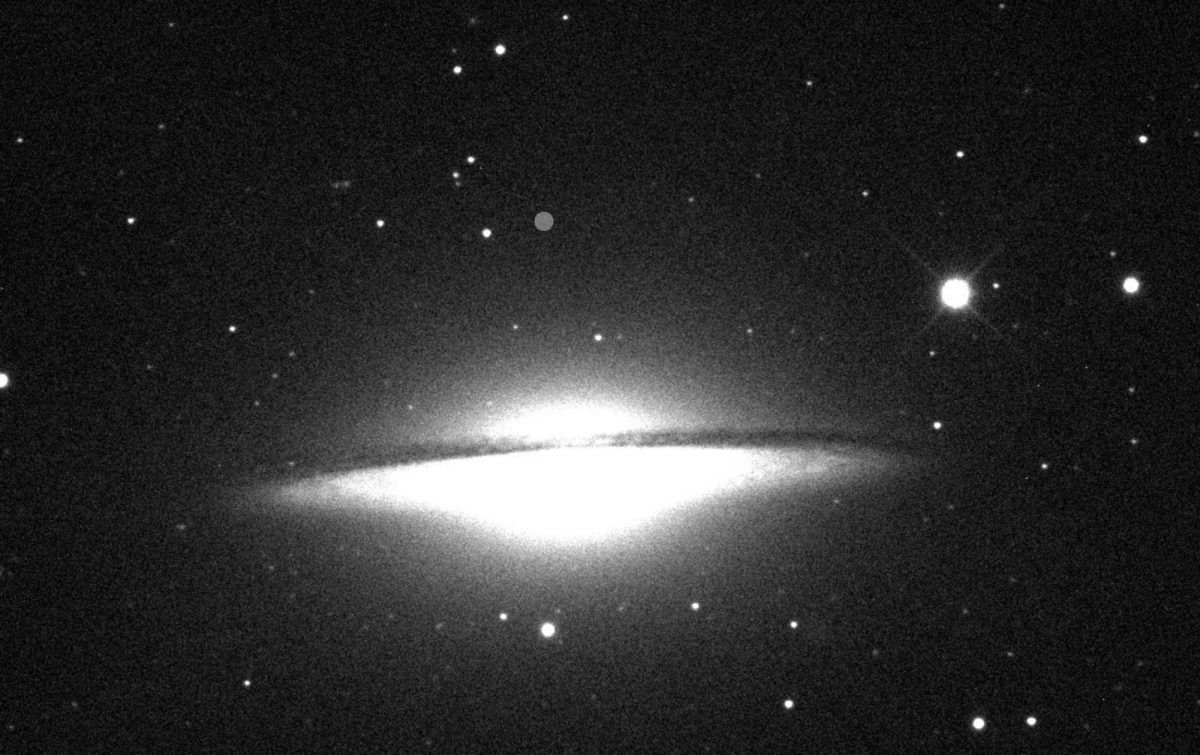Students can now reach for the stars, literally, through the new astronomy major at the University of North Carolina at Asheville that provides new classes and technological advancements.
“This new major will enable students to learn in the classroom and the lab, with a comprehensive curriculum, cutting-edge research opportunities, cross-departmental collaborations, and hands-on experiences at the University’s on-campus Lookout Observatory telescope, which has been instrumental in establishing the major,” according to UNCA’s website.
The major is the first in the state school system, and second in the state.
“Not even private universities in Chile have access to the resources we have here so they should feel really lucky about that,” said Luis Chavarria Garrido, assistant professor of physics and astronomy.
Chavarria was a representative for one of the world’s largest observatories in the world located in Chile. He said Chile is very special for astronomy because it has one of the best skies in the world.
”I am very lucky to be here, but I also think the department is lucky,” said Chavarria.
The astronomy department will be adding a higher level class to students who are interested in astronomy as a major or are looking for a more quantitative experience according to Christine Lynch, university fellow in physics and astronomy.
”We are going to add a new 200-level class that is going to cover the same content but is more targeted to those who have science and math background to kind of compliment it. You can kind of choose which one you want to take,” said Lynch
Along with the higher level class, the department will also keep the lower level beginners class for students who are interested in astronomy but not the major, according to Lynch.
“We have the introductory sequence that is at the 100-level, that is very much targeted to students who want to take their science credit but also have interest in astronomy, so it is much more targeted towards humanities and art students,” said Lynch.
Chavarria said having the university be close to the art and humanities department is beneficial for the department.
“That is something that is unique to this university. That the students have the opportunity to really do the mixture of disciplines here, because that is the goal of the University. It is not the same at other universities,” said Chavarria. “Astronomy mixes a wide range of disciplines. It is not just math.”
With the new classes follows the reopening of the lookout observatory, as well as new technological developments.
“We are getting a new radio telescope. I am involved in helping to build that, right now we are fixing the lookout. The lookout got damaged during the storm. Right now, it is still under construction and hopefully in October it will be open again,” said Lynch.
Students are able to have hands-on experience through the telescope located at the Lookout Observatory on campus. With the reopening in Oct. according to Chavarria.
“If you are taking one of the classes, you are going to be able to use that telescope to be able to do more science. You can go there, it is a pretty decent sized telescope and all modern. You can do it in the daytime too,” said Chavarria.
The class sizes here on campus are a bonus according to Will Kinley, a senior majoring in physics and minoring in astronomy.
“For me personally here, I like having smaller classes because it is easier to get one on one time with the professors. That, for my learning, is very valuable because you can ask very direct and personalized questions,” said Kinley.
The classes and the professors are what solidified his undergraduate experience within the department according to Kinley.
“Additionally, all the classes in it are very fun. I think it is the only astronomy major in the UNC system, which is surprising. I think we are very lucky to have that,” said Kinley. “The professors teaching astronomy here are fantastic. I feel like I cannot emphasize that enough.”
Students who are majoring in astronomy at the University of North Carolina at Asheville get a well-rounded education where they can find a job outside college without graduate school says Lynch.
“We’ve designed the major to allow students to get that background in astronomy, but also in technical skills. They can really take those skills and go and do any sort of technical job, like data management or analysis jobs,” said Lynch. “Our major sets you up really well to work with telescopes and to operate telescopes. That is something we really value at this institution, is that experience.”
Lynch said the new astronomy major provides students advancements in classes and technology that will prepare them for the future, and a versatile education while here at the university.
“The opportunity to be here and to be able to look at the sky with telescopes like the students do in our classes, that is something that is gold. They should take advantage of that,” said Chavarria.


![Brooke Pedersen [second from the right] and Luis Reyes [right] hold banners during the Wrap The Woods event.](https://thebluebanner.net/wp-content/uploads/2025/09/ELIZABETH_PRITCHITT_IMG_3470-1200x804.jpg)
















